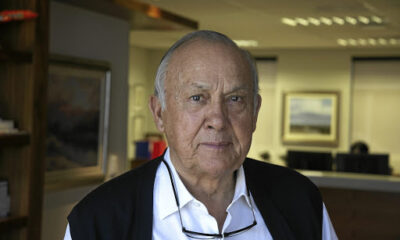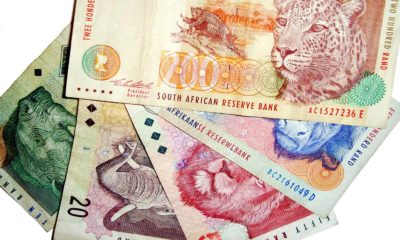- South African Airways Seeks Investor to Revive Its Fortunes
South African Airways will revive a plan to seek an equity partner that’s able to provide cash and operational savings to help turn around the state airline, according to its new chief executive officer.
A strategic investor would ideally come from within the aviation industry, CEO Vuyani Jarana, 47, said in an interview at Bloomberg’s Johannesburg office on Monday. That will enable unprofitable SAA to share costs, improve customer service and receive a capital injection, he said.
“You don’t just want a pure investor such as private equity,” said Jarana. “With a strong equity partner that has operations elsewhere, you are able to leverage from each other’s capabilities.”
A successful search for a new investor would solve the most pressing challenge facing Jarana — that of putting SAA on a sure financial footing without need of a further government bailout. It’s also a revival of a plan raised by former Finance Minister Pravin Gordhan in his budget speech in February 2016, though the formation of a new board to lead the search was only finalized last month. Jarana, who started Nov. 1, is SAA’s first permanent CEO for more than two years.
While the airline hasn’t started the process of searching for a partner, there have been expressions of interest, Finance Minister Malusi Gigaba told reporters at SAA’s headquarters in Johannesburg on Tuesday. In a separate fund-raising exercise, he’s also asked the carrier to compile a list of assets that could be sold, the minister said.
Swiss Air bought a 20 percent stake in SAA in 1999, only for the South African government to buy it back after the Swiss carrier went bankrupt. SAA is also part of the Star Alliance, a global code-sharing network that includes Deutsche Lufthansa AG and Singapore Airlines.
One of SAA’s main strengths is a 55 percent share of the South African market, which also includes contributions from low-cost carrier Mango and SA Express, Jarana said. A merger of the three airlines would help to secure a strong partner, he said, while also contributing to the cost-cutting plan.
“SA Express is still being run as a separate entity by the government with a separate board,” Jarana said. “It has a big strategic role to play.”
Jarana is due to hold talks with a group of domestic lenders about 6 billion rand ($423 million) in outstanding loans, according to Jarana. That could enable auditors to sign off on the company’s latest financial statements, after which SAA can hold an annual general meeting. The AGM will take place before Jan. 28, Gigaba said.
Business Expertise
The CEO, a former executive at mobile-network operator Vodacom Group Ltd., was hired for his business expertise rather than aviation knowledge and will spend the early months of his tenure reviewing all the company’s costs including routes, airplane leases and supply contracts. That process should be finalized by February and will be influenced solely by commercial considerations and not political pressure, he said.
SAA has this year already reduced flights to the South African cities of Port Elizabeth and East London and scaled back routes to Luanda, the capital of Angola, and Kinshasa in the Democratic Republic of Congo.
Working alongside Jarana will be new Chief Restructuring Officer Peter Davies, whose credentials include a turnaround of Air Malta and the startup of Caribbean Airlines Ltd. JB Magwaza was named as chairman in place of Dudu Myeni, who heads the charitable foundation of President Jacob Zuma.
Customer experience, internet connectivity and in-flight entertainment will be increasingly important to ensure travelers choose SAA, the CEO said. The company needs to capitalize on a growing market through its significant network of flights in Africa, he said.
SAA competes mainly with Ethiopia Airlines Enterprise and Kenya Airways Plc in sub-Saharan Africa, while Persian Gulf giants Etihad Aviation Group, Emirates Airline and Qatar Airways Ltd. operate several routes from major African cities to Middle East hubs and on to Asia or Europe.
“If we want to seriously compete against other big players in Africa and Middle Eastern carriers, we need to refresh the product,” Jarana said.

 Naira3 weeks ago
Naira3 weeks ago
 News4 weeks ago
News4 weeks ago
 Naira4 weeks ago
Naira4 weeks ago
 Naira3 weeks ago
Naira3 weeks ago
 Jobs4 weeks ago
Jobs4 weeks ago
 Travel3 weeks ago
Travel3 weeks ago
 Naira3 weeks ago
Naira3 weeks ago
 Investment4 weeks ago
Investment4 weeks ago




























